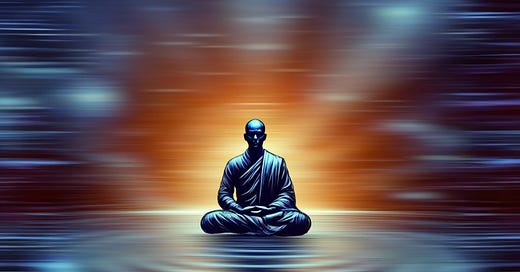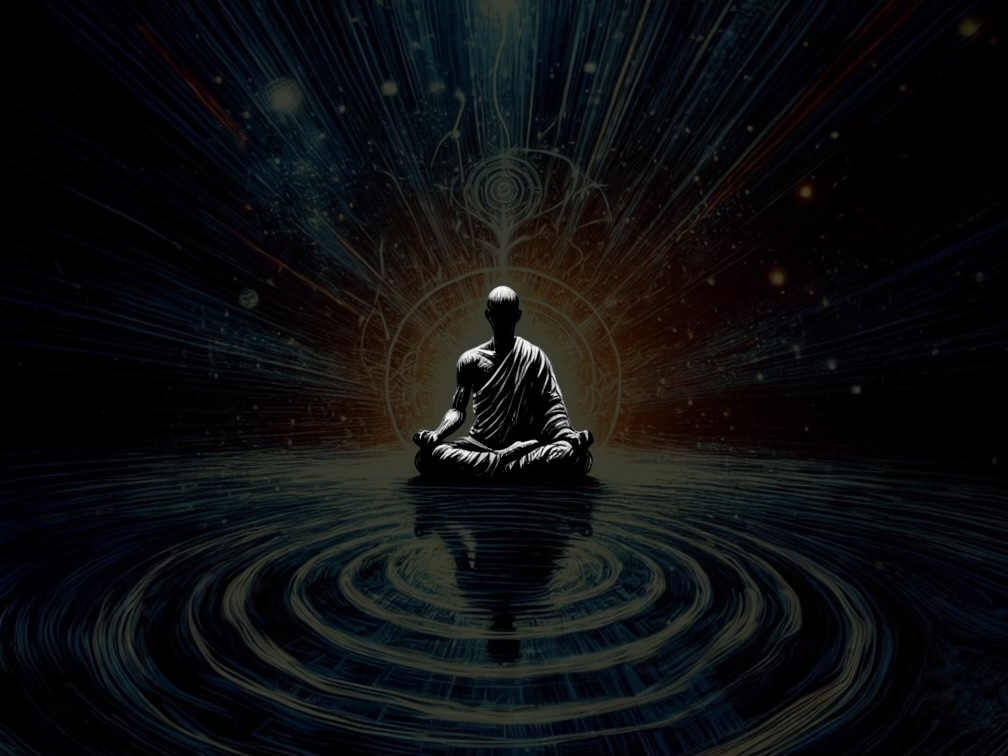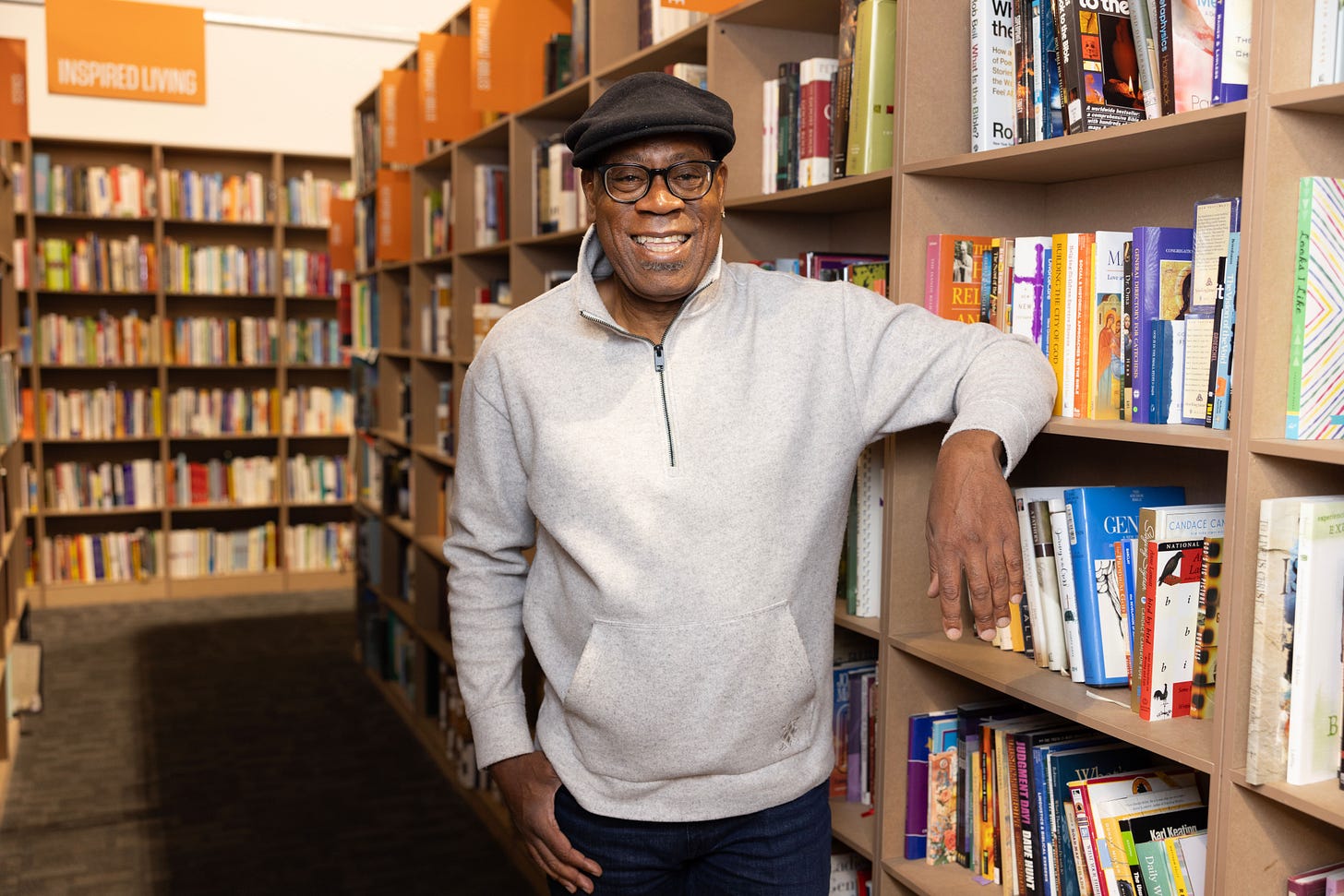In a world driven by frenetic energy and the ceaseless chase of goals, spiritual practices often remain confined to the intellect—cerebral exercises of understanding, theorizing, and rationalizing the nature of existence.
Yet, true spiritual immersion cannot reside merely in the mind; it must become an intrinsic part of our being, a natural state we inhabit effortlessly, much like how a well-formulated liposomal supplement, such as Vitamin C, permeates our cells more efficiently than conventional means.
Spiritual immersion, when approached from a Taoist philosophical perspective, becomes less about conscious striving and more about letting go—allowing the essence of life itself to flow through us with the quiet efficacy of nature itself.
In my journey with Taoism, I’ve discovered that deep spiritual connection isn’t something that requires deliberate thought or excessive analysis. Rather, it’s a state of being where I become calmly immersed in an organic, spontaneous, and intuitive vibe that courses through both my body and mind.
This is a world where everything unfolds naturally, without force or artifice. Like liposomal Vitamin C, which is absorbed seamlessly by the body at a cellular level, this immersion becomes a fluid experience, with Taoist principles saturating the core of my being.
In this state, I am free from the need to analyze, strategize, or cling to rigid doctrines. Instead, I reach a higher spiritual realm, one where spiritual connection transcends intellectualization and becomes muscle memory—an instinctual, almost sacred feeling that resides deep within me.
This journey is not dissimilar to the Ch’an traditions of China or the Zen practices of Japan, where wisdom isn’t taught but experienced. Just as these disciplines emphasize direct, lived experience over dogma or scripture, the spiritual immersion in Taoism becomes a set of intuitive principles on which I naturally operate.
It is the opposite of learning a skill like riding a bike or driving a car, which initially feels awkward, stilted, and mechanical. True immersion is seamless and fluid, like water finding its path downhill without thought or hesitation. It’s as if the Taoist spirit becomes an extension of my very being, guiding me through each moment without the need for conscious effort.
This state of natural flow is well captured by the musings of the Taoist sage Zhuangzi, who masterfully illuminated the essence of spiritual immersion. His philosophy is not about rigid adherence to rules or striving to achieve a particular state of mind. Rather, it is about remaining rooted in the present moment, even when one is seemingly wandering aimlessly.
He writes of the freedom that comes when we let go of preconceived notions, allowing ourselves to move harmoniously with the world around us, as effortlessly as a leaf drifts on the breeze.
Spiritual immersion, as Zhuangzi describes, is about staying connected to the present day, following the trail of breadcrumbs laid before us without dwelling in the past or fretting about the future.
The moment becomes everything, and everything becomes the moment. It’s about being guided by what feels right, even when the path appears unclear—a state where wandering itself becomes the destination.
In my own life, this spiritual immersion aligns closely with the Japanese samurai’s Bushido code, which suggests living each day as though it were your last. For me, this is not an invitation to indulge recklessly or pursue hedonistic pleasures, but rather a call to live each moment with integrity, presence, and attentiveness.
If today were indeed my last, I would want to be remembered for living fully immersed in the present moment, in alignment with the natural flow of life. This, to me, is the key to contentment—the foundational aim of Taoism.
To live without clinging to expectations or regrets, while also holding myself to a standard of dignity and authenticity, is where peace resides. When spiritual practice becomes more than just a mindful exercise and instead transforms into a way of life, contentment ceases to be an aspiration and instead becomes a lived reality.
In this way, Taoism is less about achieving enlightenment in a singular, grand epiphany and more about finding harmony in the small, quiet moments of daily life. It’s about the gentle, imperceptible ways in which the Tao seeps into my soul, infusing every action, thought, and interaction with a sense of sacred presence.
As with liposomal supplements, which deliver nourishment directly and efficiently to where it is needed most, this spiritual immersion allows wisdom to enter not only my mind but also my spirit. I find myself flowing effortlessly through life, grounded in a sense of ease and connection to the world around me, knowing that in each moment, I am right where I am meant to be.
All of this suggests that the essence of Taoism lies not in striving for a higher spiritual plane but in returning to a state of natural simplicity, where contentment arises organically.
By living each day as though it is both the first and the last, I honor the sacred balance of being present—embracing the ebb and flow of life with a calm, intuitive grace that reflects the very heart of the Tao.
Since 2022, I, Diamond Michael Scott, aka The Chocolate Taoist, have delivered uncommon nomadic wisdom to help you live a more interconnected and expansive life.
If this publication has been a source of wisdom for you then please consider helping me sustain it by becoming a monthly or annual contributor.
For just $6.00/month or $60.00/year, you’ll have the opportunity to share your lived experiences with fellow nomads, fueling fiery discussions that provoke, inspire, and challenge you to think differently.
So I hope you will take the plunge today and contribute to my mission of helping human travelers on this life journey.
Onward and Forward
Diamond Michael Scott aka The Chocolate Taoist







Thanks Diamond. Powerful thoughts. I read all your posts
Great wisdom here Diamond-Michael! Thank you 🙏🏼. For a number of recent years now, I’ve been pondering the meaning of living each day as if it is both our first day, and our last day. I thank Brother David Steindl-Rast for this koan. It’s a nuanced principle, subtle, but profound as the meaning began to unravel for me. Living as first day meaning to see every moment as a “not knowing” possibility, with the innocent eyes of the newborn through the lenses of curiosity, wonder, and joy. It all being a grand experiment in trial, error, and learning. Living as last day by bringing all the accumulated wisdom and experience, perhaps to be a sage and elder to all others, so that we can tell ourselves “everything is exactly the way it’s supposed to be, nothing is out of place here. It is all unraveling exactly as it should. And at your end, you return to the place from which you came.”